Kenyan President William Ruto Withdraws from Global Peace Leadership Summit
In a surprising turn of events, Kenyan President William Ruto has decided not to attend the much-anticipated Global Peace Leadership Summit in Seoul, South Korea. This summit, organized by the Global Peace Foundation, is a high-profile event aimed at fostering global peace and unity. Many world leaders and top dignitaries from various corners of the globe had confirmed their participation, making Ruto's last-minute withdrawal a significant shock.
The Role of the Global Peace Leadership Summit
The Global Peace Leadership Summit is an annual gathering that brings together leaders from different sectors to discuss and address pressing issues related to global peace, conflict resolution, and sustainable development. The summit was expected to provide a platform for influential voices, including President Ruto, to share insights and strategies on promoting peace in their regions. Given the critical role Kenya plays in the Eastern African region, Ruto's presence was highly anticipated.
Why Ruto's Withdrawal Matters
President Ruto's decision to pull out has raised many questions and sparked numerous speculations. Kenya has long been considered a beacon of stability in a region often plagued by conflict and unrest. The country has been instrumental in mediating peace processes in neighboring nations and has actively participated in initiatives aimed at promoting regional stability. Ruto, as the head of state, was expected to deliver a keynote address that would underline Kenya's commitment to these efforts.
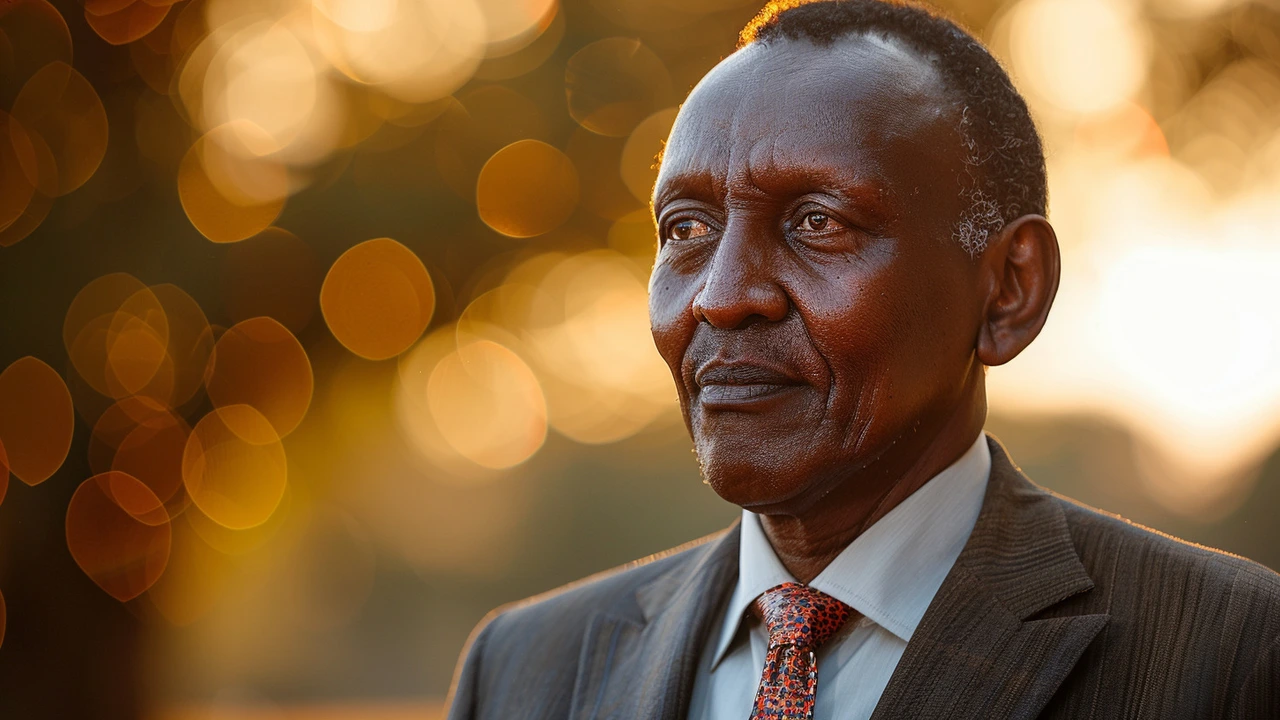
Speculated Reasons Behind the Withdrawal
While the official reason for Ruto's withdrawal has not been disclosed, several theories have emerged. Some analysts suggest that Kenya's current economic challenges may have influenced the decision. The country is grappling with a range of financial difficulties, including high debt levels and inflation, which have put significant pressure on the government's resources. Attending an international summit might have been perceived as a low priority amidst these domestic concerns.
On the other hand, there are whispers of potential diplomatic tensions that might have caused the sudden change in plans. Kenya's foreign relations with certain countries have been strained lately, and some commentators believe that Ruto's withdrawal could be a reflection of underlying issues that have not been publicly addressed. However, without an official statement from the Kenyan government or the Global Peace Foundation, these remain speculative.
International Reactions and Concerns
The international community has been left wondering about the broader implications of Ruto's decision. Kenya's withdrawal from such a significant event might signal a shift in the country's engagement on global peace platforms. This move could potentially impact Kenya's influence in regional and global peace initiatives. Some experts fear that Ruto's absence may weaken Kenya's position as a leader in peacekeeping and conflict resolution, which could have longer-term repercussions for the country's international standing.
The Summit Goes On
Despite Ruto's unexpected pullout, the Global Peace Leadership Summit will proceed as planned. The organizers have not released any official statements regarding the President's withdrawal and seem committed to ensuring the success of the event. Other prominent leaders are expected to step in to fill the void left by Ruto's absence, and the summit's agenda remains unchanged. The discussions will cover a range of critical topics, including conflict resolution, sustainable development, and global cooperation.
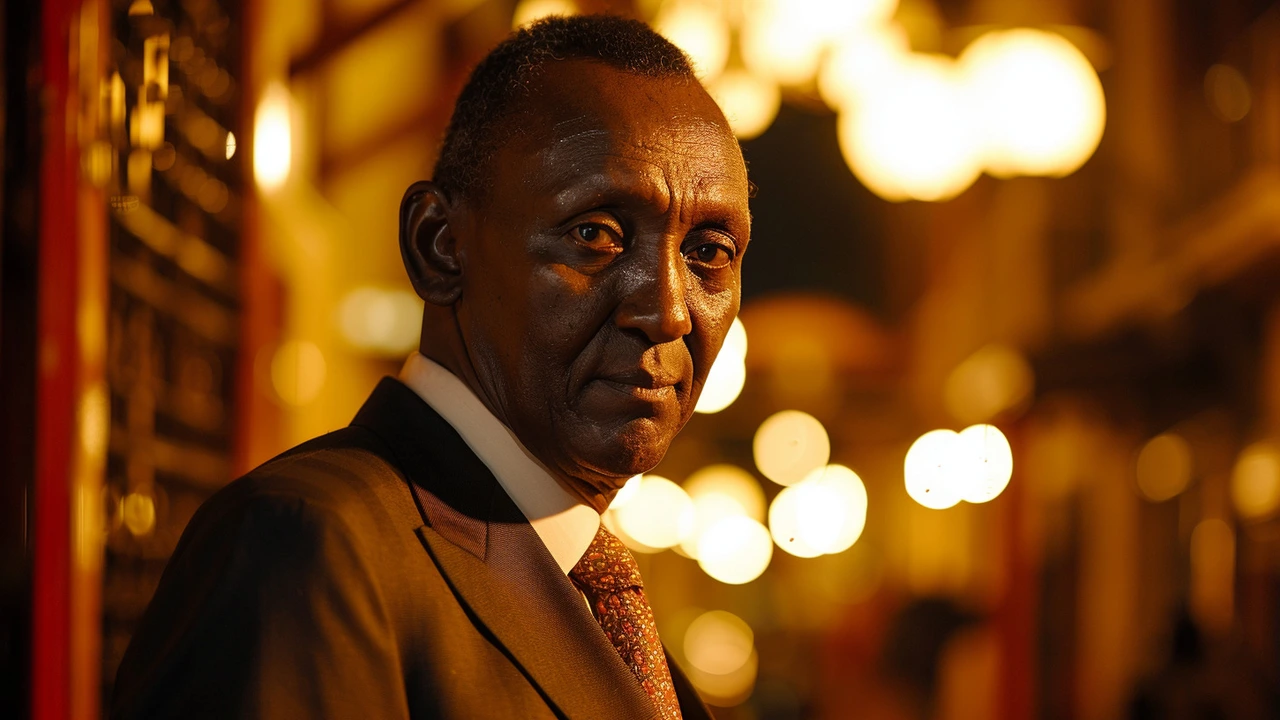
Looking Ahead
As Kenya navigates through its economic challenges and potential diplomatic complexities, the decision of President Ruto to skip the Global Peace Leadership Summit might be a move to prioritize domestic affairs over international engagements. However, the long-term impact of this withdrawal on Kenya's role in regional peace efforts remains to be seen. The next few months will be crucial in understanding how this decision affects Kenya's international relations and its standing in global peace initiatives.
The Global Peace Leadership Summit continues to be a pivotal event for fostering dialogue and cooperation among world leaders. While Ruto's absence is significant, the collective efforts of participating dignitaries will no doubt contribute towards meaningful discussions and potential solutions for pressing global issues. It is hoped that Kenya will continue to play its vital role in promoting peace and stability, both regionally and globally, despite the current uncertainties.
Conclusion
In summary, President Ruto's unexpected withdrawal from the Global Peace Leadership Summit has raised several questions and stirred much speculation. The international community will be closely watching to see how this development unfolds and what it signifies for Kenya's future role in promoting peace and stability. The summit will proceed, but the absence of one of its key expected speakers has undoubtedly created a ripple effect, reminding us of the interconnected nature of global diplomacy and peace efforts.

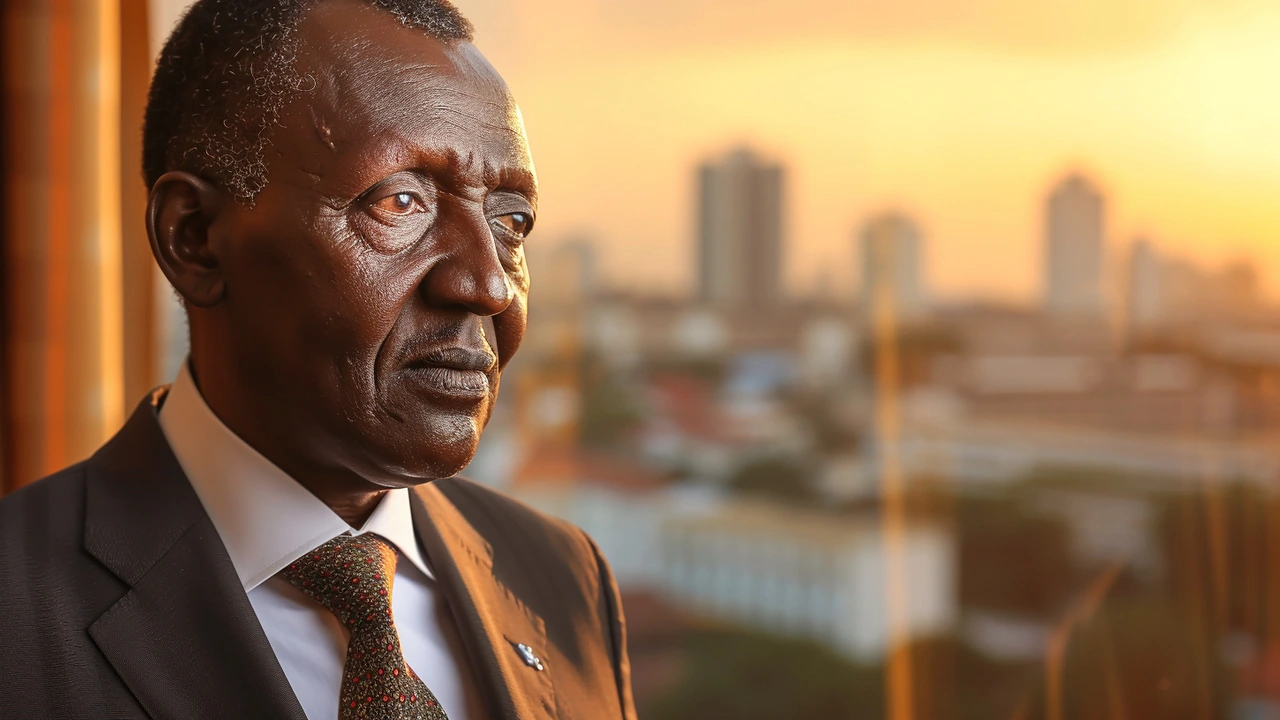
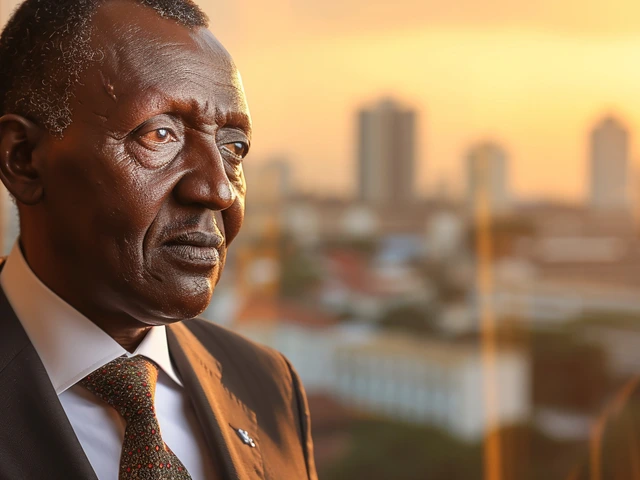
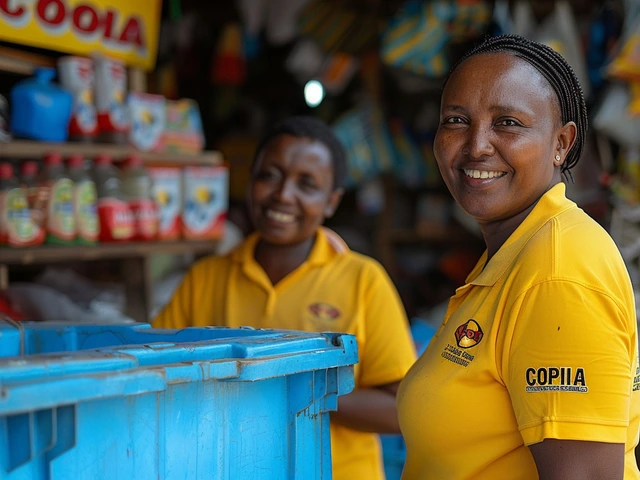
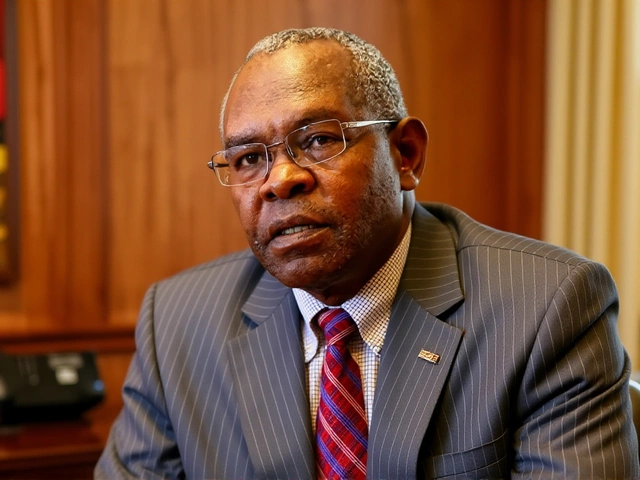
Comments
President Ruto’s abrupt decision to skip the Global Peace Leadership Summit raises several strategic considerations that merit close examination. First, the timing coincides with Kenya’s mounting fiscal pressures, suggesting a possible recalibration of foreign engagement priorities. Second, the absence may be interpreted by regional partners as a signal of diminishing Kenyan diplomatic bandwidth, potentially affecting mediation initiatives in neighboring conflict zones. Third, the withdrawal could reflect internal political calculations, where domestic legitimacy is being prioritized over international visibility. Moreover, the missed opportunity is noteworthy given the summit’s agenda emphasizes sustainable development and conflict resolution, aligning closely with Kenya’s own development plans. Analysts have also pointed to recent diplomatic frictions with certain East African states, which may have contributed to a more cautious foreign policy stance. In addition, the decision may influence Kenya’s standing within the African Union, where collective peace‑building efforts are often coordinated. While the official rationale remains undisclosed, the pattern of recent budgetary reallocations suggests economic constraints are a plausible factor. Equally important is the message sent to multilateral institutions that Kenya may be re‑evaluating its commitment to global peace forums. This could embolden other nations to reassess their own participation in similar initiatives. From a security perspective, maintaining a visible role in regional peace processes helps deter external interference, a benefit now potentially eroded. Furthermore, the domestic audience may perceive the withdrawal as a pragmatic move to focus on pressing economic reforms. The international community, however, is likely to monitor subsequent Kenyan diplomatic actions for signs of continuity or retreat. In sum, the withdrawal is not merely a logistical hiccup but a multi‑dimensional development with implications for Kenya’s regional influence, economic policy, and global diplomatic posture. Future statements from the Kenyan presidency will be essential to clarify the strategic calculus behind this decision.
While the immediate reaction focuses on the surprise factor, it is equally important to recognize that redirecting attention to domestic economic reforms can yield long‑term stability that benefits regional peace efforts.
Considering Kenya’s historical role as a mediator, the withdrawal might temporarily hamper ongoing dialogue mechanisms, yet it also opens space for other regional actors to step forward and reinforce collaborative peace frameworks.
oh wow, ruto just bail out? thts kinda wild, i mean kenya has always been like that peace keeper thing lol but maybe they need to sort out the cash probs first 🙃
This whole withdrawal is a joke.
Ruto's exit could recalibrate Kenya's diplomatic capital, affecting its leverage in multilateral conflict‑resolution architectures.
Interesting point, but honestly it feels like a PR misstep 🙄🚩
Lets hope Kenya can sort the money issues fast 💪🚀
Kenya’s position in the Horn of Africa has historically been underpinned by a delicate balance of internal development goals and external diplomatic engagements, a balance that now appears to have tilted toward prioritizing domestic fiscal consolidation. The decision to forego participation in a high‑profile summit may, on the surface, seem like a retreat from the global stage, yet it also reflects a calculated assessment of resource allocation in the face of mounting debt servicing obligations. Moreover, the regional peace architecture, built over decades of concerted effort, is resilient enough to absorb temporary absences of individual states, provided that the underlying institutional mechanisms remain robust. This resilience is evident in the continued operation of cross‑border mediation committees, which have persisted despite fluctuations in political will among member countries. In addition, Kenya’s internal political dynamics, including upcoming legislative sessions and budget approvals, demand immediate executive attention, thereby justifying a temporary de‑emphasis on external engagements. While critics may argue that such a withdrawal undermines Kenya’s credibility, the government can mitigate reputational damage by proactively communicating its strategic rationale and by reaffirming commitments through alternative diplomatic channels. Ultimately, the long‑term impact will hinge on how effectively Kenya translates domestic fiscal recovery into sustained diplomatic outreach once economic conditions improve.
True that, but let’s not pretend this isn’t also a subtle signal to rivals that Kenya won’t be bowing to every international agenda.
From an analytical standpoint, the timing of the withdrawal aligns with recent fluctuations in Kenya’s balance of payments, suggesting that macro‑economic indicators are influencing foreign policy decisions more than rhetoric.
yeah i think the numbers speak louder than the speeches we hear on tv and maybe they need to fix those before sending envoys abroad
What if the real reason behind the withdrawal isn’t just economics but a covert alignment with hidden power blocs that prefer to keep the peace talks under their own control? Some insiders claim that unpublicized negotiations are underway, steering Kenya away from a summit that could expose certain strategic alliances.
While speculative, the hypothesis warrants a deeper examination of Kenya’s strategic partnership matrices, particularly in relation to emerging security corridors and resource‑linked diplomatic incentives that could be influencing the decision matrix.
Let’s keep the conversation constructive and hope that Kenya’s focus on internal reforms will eventually translate into stronger contributions to regional stability.
Indeed, the emphasis on domestic consolidation should not be misconstrued as a disengagement from the collective responsibility of peace‑building; rather, it underscores the pragmatic reality that sustainable stability abroad is contingent upon a resilient home front. By channeling resources toward economic revitalization, Kenya is effectively fortifying the very foundation that enables it to act as a credible mediator in future negotiations. Moreover, the historical precedent set by other nations illustrates that periods of inward focus often precede phases of heightened diplomatic activity, suggesting a cyclical pattern of engagement that aligns with internal capacity building. Therefore, stakeholders across the continent would do well to interpret this strategic pause as a calculated maneuver rather than a relinquishment of influence, and to await forthcoming initiatives that will likely re‑establish Kenya’s prominent role in peace processes.
The withdrawal frankly reveals a lack of strategic foresight; absent from the summit, Kenya forfeits a platform to shape narratives that could benefit its own geopolitical agenda.